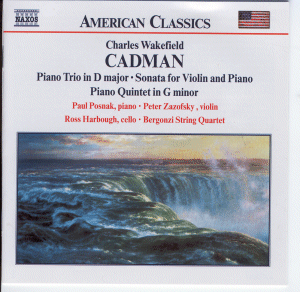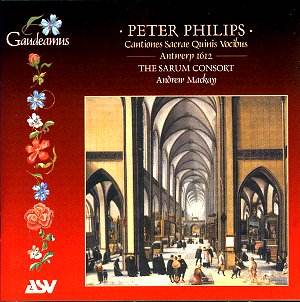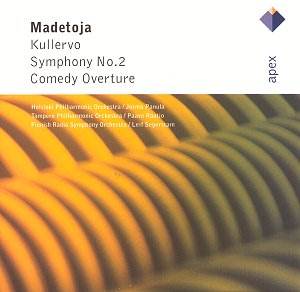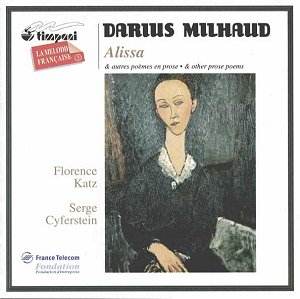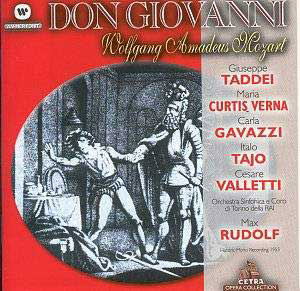 Composer: W. A. Mozart
Composer: W. A. Mozart
Works: Don Giovanni
Performers: Giuseppe Taddei (bar), Italo Tajo (bass), Cesare Valletti (ten), Vito Susca (bar), Maria Verna (sop), Carla Gavazzi (sop), Elda Ribetti (sop)
Recording: Turin Radio Orchestra and Chorus, conducted by Max Rudolf, 1955, mono
Label: Warner Fonit
Mozart’s Don Giovanni remains a cornerstone of the operatic repertoire, an enduring exploration of morality and desire wrapped in a masterful blend of comedy and tragedy. Composed in 1787, the opera’s rich tapestry of characters and intricate musical motifs has inspired countless interpretations, yet this 1955 recording, featuring a cast of Italian singers under the baton of Max Rudolf, offers a compelling glimpse into the work’s historical and cultural milieu. The Cetra label’s commitment to capturing the operatic essence of Italy during this vibrant period is evident, providing a unique window into the performance practices of the time.
Giuseppe Taddei’s portrayal of the titular Don Giovanni, while celebrated for its smoothness and lyrical beauty, may lack the raw, seductive edge that one finds in more recent interpretations, such as those by the likes of Ruggero Raimondi or Thomas Hampson. The Italians famously claimed, “we gave Gobbi to the world but kept Taddei to ourselves,” which suggests a certain pride in Taddei’s artistry. His voice, however, is notably mellifluous, and in moments where the character’s charm is paramount, such as in the serenade “Deh, vieni alla finestra,” Taddei’s interpretation shines, encapsulating the Don’s captivating yet ultimately destructive nature.
Contrastingly, Italo Tajo’s Leporello emerges as a strong character in his own right, perhaps overshadowing the Don at times. This dynamic is intriguing, as it offers a nuanced interpretation where the servant’s vitality complements his master’s more refined approach. Tajo’s use of the Italian language contributes to a naturalness in expression, allowing the humor of his lines to resonate with clarity. One cannot help but admire Cesare Valletti’s Don Ottavio, whose robust tenor shines in “Il mio tesoro,” executed with an ardent fervor that eschews the usual limpness often associated with the character. Valletti’s confident phrasing and tonal warmth signal a man of determination, a refreshing take on a role often relegated to the background.
The ensemble’s overall performance is commendable, with notable contributions from Maria Verna (Anna) and Carla Gavazzi (Elvira), although the latter occasionally veers into shrillness, which may stem from the recording’s mono quality. The sound engineering, while clear and upfront, leaves one yearning for the depth and spatial richness found in contemporary stereo recordings. Nonetheless, the clarity of diction and the vividness of the performers’ interactions, particularly in ensemble numbers like the Act I finale, underscore the strength of this recording. The lively pacing set by Rudolf infuses the proceedings with a vigorous energy that propels the drama forward, albeit sometimes bordering on freneticism.
The historical context of this recording cannot be underestimated; it emerges from an era when Italian opera was at a zenith of recording prowess, and the artists involved were steeped in the traditions of their craft. This rendition, while perhaps overshadowed by more modern productions, offers a fascinating look at how Don Giovanni was interpreted in mid-20th century Italy, showcasing a blend of provincial charm and international caliber. The absence of a translation in the accompanying booklet limits accessibility, but the full libretto allows listeners to engage with the opera’s intricate narrative.
This reissue, given its bargain price, serves as an essential addition for those interested in the evolution of Don Giovanni performances. The interplay of language, character, and musicality encapsulates a vital moment in operatic history, reaffirming Taddei’s artistry and the ensemble’s collective strength. The recording’s place in the pantheon of Don Giovanni interpretations may be modest, yet its rich, authentic Italian flavor provides an enriching listening experience, inviting both admiration and reflection on the timeless complexities of Mozart’s masterwork.
